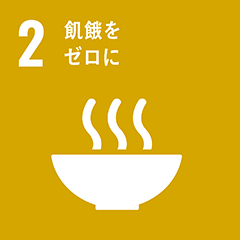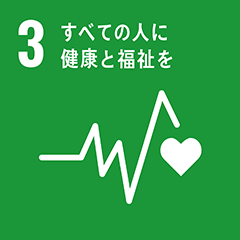Inochi Declaration
Strengthen the capacities and competencies of the academic and research community to drive interdisciplinary systemic change, deliver evidence-based guidance, and foster global collaboration—to lead food systems transformation, improve nutrition, and tackle climate and health challenges, toward a healthier, more equitable future.
Today, the world is facing a polycrisis, with escalating conflicts, economic volatility, rising food prices, and intensifying climate-related extreme weather events and disasters threaten global stability. As multilaterism weakens and geopolitical tensions rise, progress towards achieving the 2030 Sustainable Development Goals (SDGs) is increasingly at risk.
Hunger and malnutrition—both undernutrition and obesity— remain global crises, driven in part by poor and unhealthy diets, with over 2.6 billion people unable to afford a healthy diet essential for nutritional well-being. Meanwhile, as the world recovers from the COVID-19 pandemic —the defining health crisis of the 21st century—new disease outbreaks (i.e. Mpox and Marburg) along with re-emerging diseases (i.e. avian flu), are compounding public health risks. Food insecurity is rising, diet-related diseases are worsening, and the urgent call for safe, healthy, and sustainable diets remains unmet, making decisive global action more critical than ever.
With just five years left to achieve SDGs, much stronger sense of urgency, commitment, and bold, accelerated efforts are required from every sector and stakeholder to fulfill their commitments and take transformative steps to tackle the pressing challenges of food security and nutrition. The Osaka Kansai Expo 2025 came at this pivotal moment, serving as a platform to explore innovative solutions for saving, empowering and connecting Lives — “Inochi” in Japanese — by fostering dialogue, inspiring innovation, and driving the global community toward a more sustainable, interconnected future. In essence, it aimed to create resonance between humanity and nature, focusing on the pursuit of a sustainable and inclusive future for all as envisioned by the Inochi Forum.
National governments play a critical role in transforming food systems to foster resonance between humanity and nature, ensuring healthier diets and improved nutrition for all. This systemic change is vital for building a sustainable, resilient, and equitable future. To lead this transformation, governments must demonstrate decisive leadership by enacting and enforcing policies that strengthen nutrition security, promote sustainable agriculture and protect environment.
Translating commitments into tangible results requires concrete actions that tackle the root causes of malnutrition, food insecurity, and climate-related challenges. Governments must ensure policy coherence across sectors to prevent conflicting priorities and maximize impact. Additionally, the strategic allocation of human and financial resources is essential for driving sustainable implementation, advancing research and innovation, and fostering cross-sector collaboration. With decisive leadership and unwavering commitment, governments can create lasting changes in food systems that nourish both people and the planet.
To effectively guide national governments, the academic and research community must possess key capacities and competencies. A deep understanding of novel systems, coupled with interdisciplinary expertise, is essential for tackling complex challenges in food systems, nutrition, public health, and climate change. The academic and research community must integrate insights from diverse fields to provide evidence-based policy recommendataions and conduct high-quality studies, using advanced tools like big data and epidemiological analysis to generate actionable insights to shape impactful policy decisions.
Equally important are effective policy advocacy and communication skills to translate complex research findings into clear, actionable recommendations for policy-makers. Competencies in policy analysis and evaluation enable the assessment of existing policies and the identification of areas for improvement. Additionally, strategic thinking drive systemic change, while ethical and cultural sensitivity ensures that policies are equitable, inclusive, and socially responsible. These capacities empower the academic and research community to play a crucial role in tackling pressing global challenges of food insecurity, malnutrition, and public health.
Enhancing the capacities and competencies of the academic and research community is also crucial for counteracting the harmful effects of commercial determinants of health, such as the strategies, practices, and products promoted by corporations and industries that undermine public health and the well-being of individuals and populations.
The Health / Food group of the “Inochi” Forum, which was formed consisting of international experts from different disciplines and from different regions of the world, would therefore propose to implement the following two specific actions to strengthen the capacities and competencies of the academic and research community, with a view to effectively play its pivotal role and contribute to meet the above mentiond challenges: *1*2
1.Strengthen knowledge sharing through organizing a series of webinars during 2025–2026 to disseminate information, foster discussions, and exchange insights on critical topics related to food systems, nutrition, public health, and climate change, specifically targeting the academic and research community in the Asia-Pacific and African regions
● A monthly webinar series will be organized, inviting members from national and regional food and nutrition societies, as well as scientific communities, with a special focus on participants from the Asia-Pacific and African regions.
2.Establish the Asia Pacific Collaborative Network on Food for Humanity in close partnership with Columbia University’s Food for Humanity initiative (F4Hi),*3 launched on 4 February 2025
●The network will focus on developing innovative solutions to transform food systems by advancing actionable research, education, policy, and programmes related to sustainable and equitable food systems.
●Interim progress of the network’s work will be presented and discussed at a conference at the end of 2026.
[Notes]
*1 Nutrition and food systems transformation are vital to achieving the SDGs. Anchored in SDG 2 (Zero Hunger), they are critical for ending hunger, improving health (SDG 3), boosting learning outcomes (SDG 4), reducing poverty (SDG 1), and fostering economic growth (SDG 8). Sustainable, resilient food systems also support climate action (SDG 13) and responsible consumption (SDG 12), positioning nutrition and food systems as cross-cutting enablers of the entire 2030 Agenda and beyond.
*2 Schneider , KR, et al. The state of food systems worldwide in the countdown to 2030. Nature Food, 2023, 4 (21) : 1090 – 1110.
*3 https://food.climate.columbia.edu/
[Action Platform]
Medical and Welfare
[SDGs]



